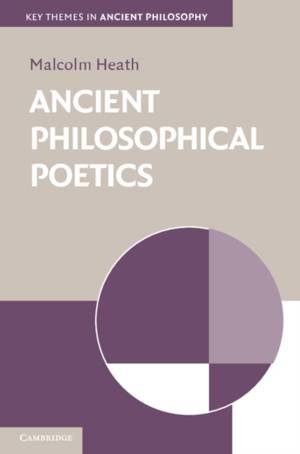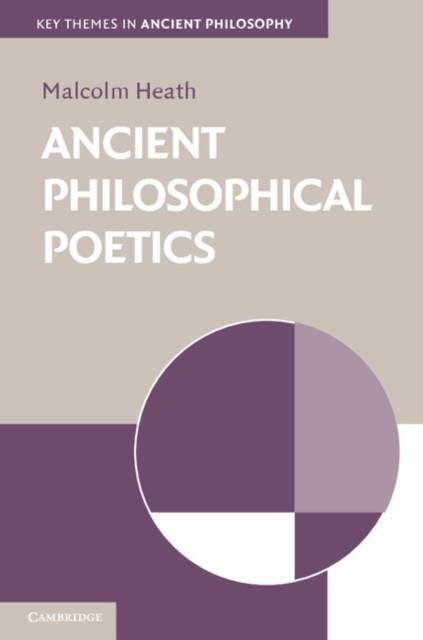
- Afhalen na 1 uur in een winkel met voorraad
- Gratis thuislevering in België vanaf € 30
- Ruim aanbod met 7 miljoen producten
- Afhalen na 1 uur in een winkel met voorraad
- Gratis thuislevering in België vanaf € 30
- Ruim aanbod met 7 miljoen producten
Zoeken
€ 136,95
+ 273 punten
Uitvoering
Omschrijving
What is poetry? Why do human beings produce and consume it? What effects does it have on them? Can it give them insight into truth, or is it dangerously misleading? This book is a wide-ranging study of the very varied answers which ancient philosophers gave to such questions. An extended discussion of Plato's Republic shows how the two discussions of poetry are integrated with each other and with the dialogue's central themes. Aristotle's Poetics is read in the context of his understanding of poetry as a natural human behaviour and an intrinsically valuable component of a good human life. Two chapters trace the development of the later Platonist tradition from Plutarch to Plotinus, Longinus and Porphyry, exploring its intellectual debts to Epicurean, allegorical and Stoic approaches to poetry. It will be essential reading for classicists as well as ancient philosophers and modern philosophers of art and aesthetics.
Specificaties
Betrokkenen
- Auteur(s):
- Uitgeverij:
Inhoud
- Aantal bladzijden:
- 204
- Taal:
- Engels
- Reeks:
Eigenschappen
- Productcode (EAN):
- 9780521198790
- Verschijningsdatum:
- 7/01/2013
- Uitvoering:
- Hardcover
- Formaat:
- Genaaid
- Afmetingen:
- 155 mm x 231 mm
- Gewicht:
- 439 g

Alleen bij Standaard Boekhandel
+ 273 punten op je klantenkaart van Standaard Boekhandel
Beoordelingen
We publiceren alleen reviews die voldoen aan de voorwaarden voor reviews. Bekijk onze voorwaarden voor reviews.











